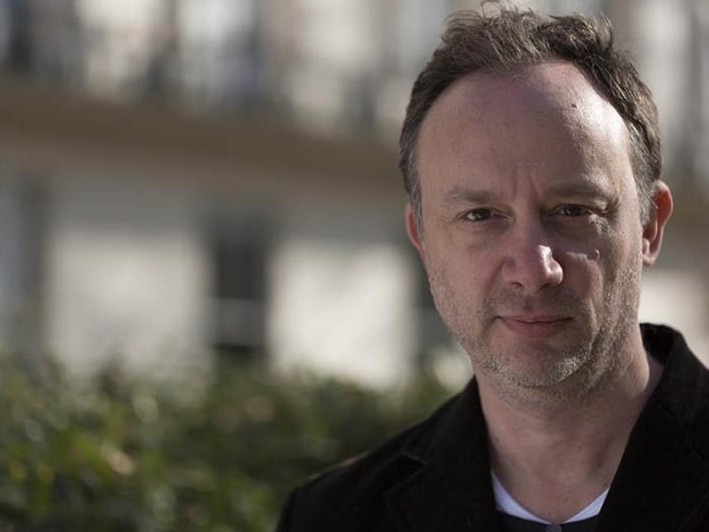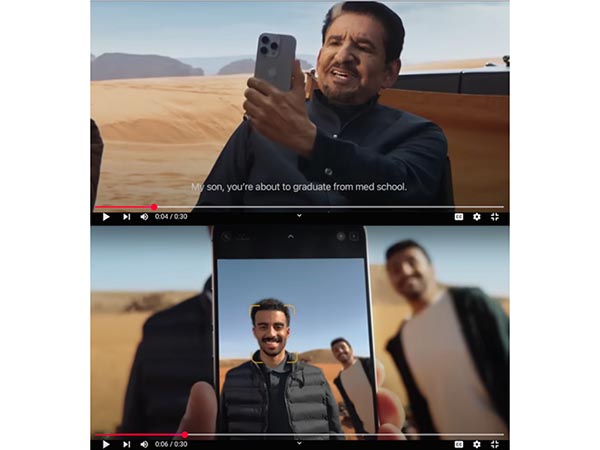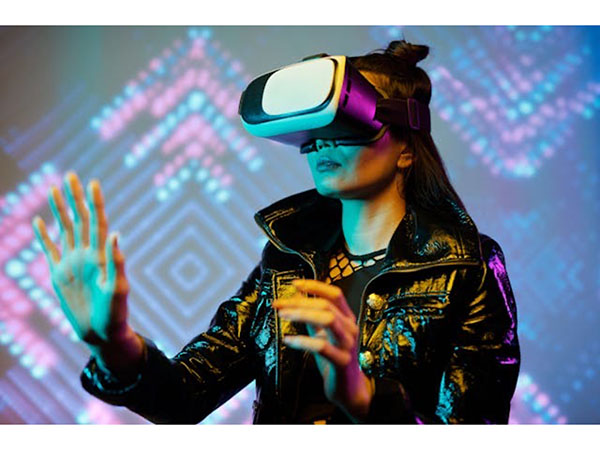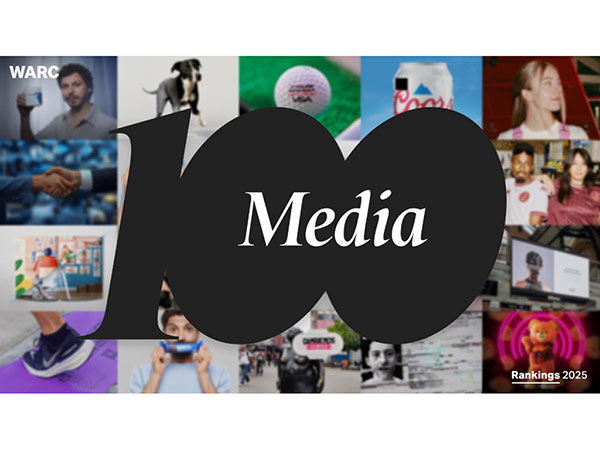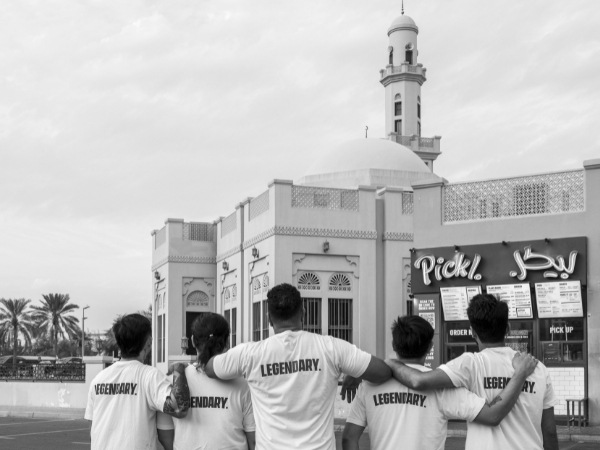News - Advertising
Jon Hamm, on Creativity, Innovation and Technology
by Ghada Azzi
February 9, 2019

At Dubai Lynx your talk explores the theme of “Weaponizing Creativity” – which makes it sound like creatives are about to do battle versus Artificial Intelligence (AI)! How do you think creatives can distinguish their discipline, and make it useful and relevant as creativity leans more on data and AI?
I deliberately chose the title ‘Weaponizing Creativity’ as I believe there are two challenges facing the creativity industry that we need to address with some urgency and I wanted the title to not only reflect the urgency of the issues but also to point a way forward.
To weaponize something is to enhance the existing attributes of a subject to fight back against a particular target.
For me, I believe there are two targets we need to fight back against as an industry; one is the boardroom perception that creativity can be replaced by technology and data and the second is the reality that there is too much work that we as an industry produce that is simply nothing but noise. Which in turn feeds the perception in the boardroom.
The way to fight back against these two things is to look to the existing attributes of creativity and to see how we can enhance them, to make them more powerful, more effective, more meaningful and in turn secure creativity’s role.
I want to be clear, I’m not saying that AI and data are not hugely invaluable to creativity and driving it but there is a problem in our industry that we need to address. We need to reaffirm the value of creativity per se, not just in terms of the output but of the process, the culture and the value that it can bring when it is embraced by us and our clients. This is a battle.
You reference the importance of embracing science and the psychology around behavioural change. How is this informing some of the client work you’re doing with Geometry Global? What does it look like in practice?
I love looking outside our industry for inspiration, maybe because I have had a career path that has included some non-traditional routes. I believe that the more we understand about how we think and how people act then the better we can be at helping create the kind of things they want.
With this in mind I’ve always been a fan of looking at behavioural thinking, as I think it can help us affect both the creative process itself, the way we actually generate the ideas and also help us inform and craft the finished idea to make it more powerful.
Through an understanding of behavioural triggers or even a basic understanding of what motivates people to take the actions that they do, we can look at a problem or brief through a number of different “windows”, in essence be forced to explore a multitude of different options to solve the problem.
In particular what I love about this is that it forces the creative team to be diverse in their thinking whilst at the same time being very focused on the same problem. After all creativity is difficult and if there are ways like this that can help us explore different routes then we should embrace them
The second reason that I believe it is important to embrace behavioural thinking relates to the idea itself.
The more information we can have about how and why people do the things they do then the more relevant our ideas can be and the easier it will be to get people to do them. Getting people to act is very difficult and we need to embrace all the help and support we can from outside our world to make this happen.
An understanding of behavioural thinking and the tools to embed it into our creative process are core to the Geometry way of working and we include it in all our briefs and the ways we encourage our creatives to think. To be honest it’s not an easy task, getting people who are often under pressure and time poor to think about how they think is not something they naturally want to do. However, when we have taken our teams and clients through the process in a very detailed and involved way they have all been overcome by the results and the difference that can be achieved.
“I believe there are two targets we need to fight back against as an industry; one is the boardroom perception that creativity can be replaced by technology and data and the second is the reality that there is too much work that we as an industry produce that is simply nothing but noise.”
As the role of the creative agency changes, we’re seeing organisational re-structures and new data-specialist disciplines evolve to enhance the creative approach. How are you evolving your creatives teams and your approach at Geometry?
For me this goes beyond embedding different disciplines into the creative process to a new approach that we should all be taking.
In the old world, IDEAS used to come from the creative department. In the new world I believe we need CREATION to come from the whole company.
Only by rethinking the role of the agency itself can we have a chance of getting the diversity of talent we need thinking across our clients’ business.
At Geometry we are bringing in category experts, ecommerce experts, industrial designers, innovation gurus, experience architects, business leaders who think like entrepreneurs, strategists who are anthropologists. I think we have a good approach to the diversity of talent that we want to bring into our company. The next step is as I say above. To turn the company into one that sees creation as the entire company’s core responsibility and not just the creative department. We are still on that journey but know what we want to do.
We seem to be moving away from “brand communications” towards “brand experiences” – how is this changing the way that you approach creativity?
Difficult question to answer as the definition of “brand experience” is so different for so many people, which I think is one of the things that is holding it up. Is it stand alone physical experiences; is it digital; is it the full ecosystem that surrounds a brand? Who owns this? These are all questions that we see clients asking every day.
From my perspective I look at “brand experience” as the entirety of a brands ecosystem. The totality of the experiences that make up a brand for modern consumers.
In this world there are certainly some clients and brands that understand the importance of the brand experience and how it has greater power to drive growth and relevancy than just communications.
I believe that if we are to thrive in this world then we need to see ourselves as a business that can bring creativity in all its forms to our client’s business, in all its capacities and needs.
There is an indisputable need for creativity in business, we should be the guardians and providers of that. If we do this, we exponentially increase the value of creativity from something that goes way beyond communication to encompass all parts of the brands ecosystem. This shift requires a diverse set of talent but also the shift I mention above from “ideas from the creative department to creation from the company”.
“In the old world, IDEAS used to come from the creative department. In the new world I believe we need CREATION to come from the whole company.”
What are some of the best “experiences” you have seen brands deliver in the MENA region?
Over the years there has been some great work coming from the region from the likes of Radio Gallery for the Louvre, the #SheDrives project for Nissan or ‘Promoticon’ for McDonalds. I’m also incredibly proud of the work from Geometry in Dubai on projects like RTA, Back off Radio or Handle on Hygiene. Our Dubai office is one of the best in our network and has consistently produced great work over a number of years.
However, I’d also say the best example of a brand experience in the region is Dubai itself. Nowhere else in the world apart from maybe Disney World is an expression of a brand brought to life so completely and viscerally as the city of Dubai. It should be a study for all creatives today.
If you could snap your fingers and remove one area of friction that’s slowing meaningful progress in the merger of creativity and tech, what would it be?
I don’t think it is a merger of tech and creativity that is holding us up but the need to move from companies with creative departments to creative companies. I also think we are way too insular and too often look within our own industry for solutions. Hence why I’ll be talking about the need to step outside our world at Lynx.
However, if I could snap my fingers and change one thing it would be how client’s brief agencies. If we are to truly get to a place where creativity can give the best of itself, we need clients to brief problems not channels, and we need holistic access to all of their ecosystem.
Can you share any of your favourite tech-enhanced creative work?
A recent example of something small that I like is the work that Costa Coffee and Barclay Card have done in the UK, to create tech enabled reusable cups. Sounds like simple idea but it’s rooted in a lot of behavioural thinking about how to change behaviour and to get people to remember to bring their reusable cup. It’s also well executed with some solid product design to make it feel like you are getting something you want from it.
I also loved the work we did last year with haptic technology for the blind and with product development and WIFI in Russia. There are too many to pick one out.
About Jon Hamm
Jon Hamm began his career with the launch of a successful digital agency that created industry-defining work for the likes of Sony PlayStation. In 2008, he established a content company, with offices in London and LA. Prior to joining Geometry (WPP) as Global Chief Creative Officer in 2015, Jon was the Chief Creative and Innovation Officer for Momentum Worldwide (IPG).
Today he has responsibility for Geometry’s transformation, innovation and creativity across the globe. In 2018, the agency won awards for innovation, technology and mixed reality. Some highlights include creating groundbreaking, multi-platform online experiences for PlayStation; producing the omnichannel, branded content experience, “Unstaged” for American Express. Jon's clients include the likes of Diageo, GSK, Coca-Cola and Sony.
His talk session at Dubai Lynx titled 'Weaponizing Creativity is scheduled on Monday, March 11 at 3:30pm


